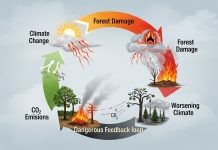Nigerian Conservation Foundation (NCF) has named overgrazing, drought, excessive logging activities and poor management of upstream water development scheme as major threats to the continued existence of Hadejia Nguru Wetlands (HNW).
The Director-General of the NCF, Dr Muhtari Aminu-Kano issued the statement in Lagos last week while warning that the HNW spanning Jigawa and Yobe States could be totally lost if the Federal Government fail to tackle the challenges.
“These wetlands, made up of floodplain wetland comprising permanent water bodies and seasonally flooded areas,” the statement revealed.
Aminu-Kano pointed oit further that the HNW is of international significance to Palaearctic and Afro tropical migratory water birds, with 423,166 individual birds from 68 species.
Bird populations in the wetlands usually fluctuate at each seasonal counts and has attracted a lot of fanciers to the country. In 1989, Prince Phillip, the Duke of Edinburgh visited Borno State in his capacity as President of the Worldwide Fund for Nature.
“He toured Dogana Village of Bade Local Government (now in Yobe State), where birds come from Europe to roost. This was the first time the HNW would receive international recognition. The area is now known as Waterfowl Sanctuary, a wetland sector of the Chad Basin National Park,” the NCF statement revealed.
“The area around the HNW is of immense interest to bird-watchers particularly those seeking out endangered species. In 2000, the Marma Channel/Nguru Lake Complex of the wetland was designated a RAMSAR SITE, a first of its kind in Nigeria.”
Giving other value of the wetland, the firm said the HNW had long been known as a centre of fish production.
“The economic value of fish production from the flood plains adds weight to the argument in favour of maintaining the annual flooding of the wetlands. Moreover, the significance of fishing goes beyond its value in monetary terms. Fishing plays an important role in the flexibility and adaptability of the rural economy in the flood plains,” it stated.
The foundation also noted that a reduction in the flexibility through degradation of the fishery resource could have serious repercussions on the ability of communities to adapt to fluctuations in their environment.
“Many people are involved in the fisheries and so the social consequences of any appreciable reduction in productivity will be felt throughout the area,” Aminu-Kano said.


















